When we entered Portugal a week ago Beastie was guided into a ‘Peage’ (toll booth). We had no choice in the matter. He had his number plate recorded. We handed over the details from one of our plastic cards. The idea being that auto-recognition cameras (auto being an appropriate term), identify us whenever we use a toll road. We’ll no longer have to slow a journey passing through a Peage. We’ll be recognised and our card charged. Great idea. Even if we don’t use toll roads.
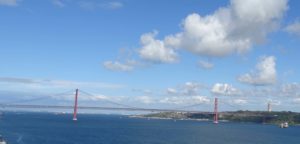
Our Lisbon camp is on the other side of the Targus River. The only way over is via this huge suspension bridge. (six lanes plus two train lines). Just before, a bank of Peage booths loom. The two inside lanes show a big green tick on the ground and above their booths. Traffic flows freely through these. There are queues to the remaining six booths. As we’ve already been “clocked”, so to speak, we take a green route. Assuming we’ll automatically be charged. However, once we’re past the point of no return I see a sign saying “It is illegal to cross without paying a toll”. As we enter our booth we have no opportunity to pay. No machine. No person. As we slowly move on through, the green “auto” light changes to red, but the barrier remains raised. I put my foot down. Later, Mr Google informs me that the bridge toll has been privatised.
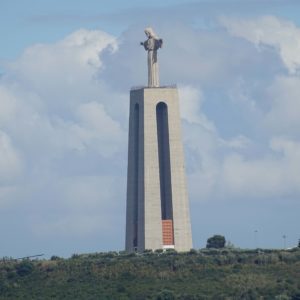
The cloudy wet day disappears. And once plugged in on site, so do we. Scoot back down to the harbour area. It’s full of people and monuments.
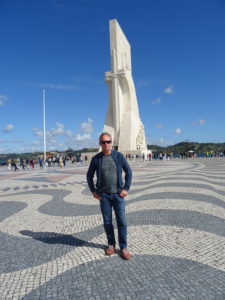
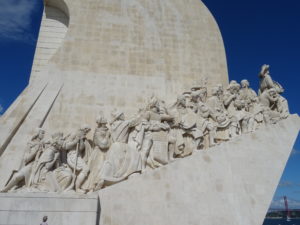
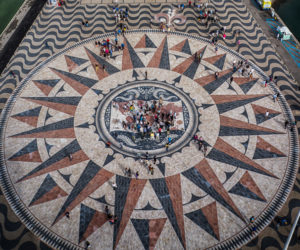
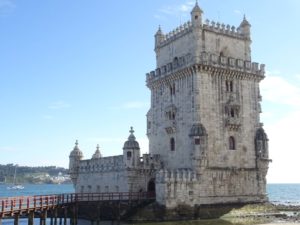
Despite being able to maintain its neutrality during WW2, Portugal has since suffered many losses. Mostly during its efforts to maintain its colonial presence in Africa. Recognition of that sacrifice logged at “Overseas Monument”
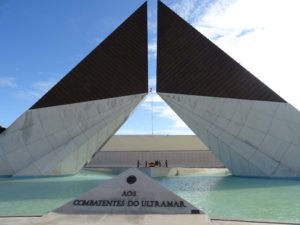
The line of monuments are all in easy walking distance. We’re not sure if this bus is going to attract any customers.
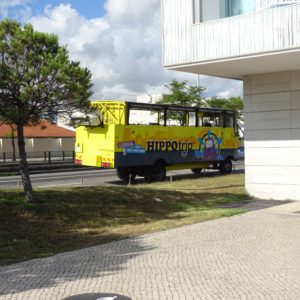
Shortly afterwards it’s full. Passes us again. But not quite where we expected to see it!
